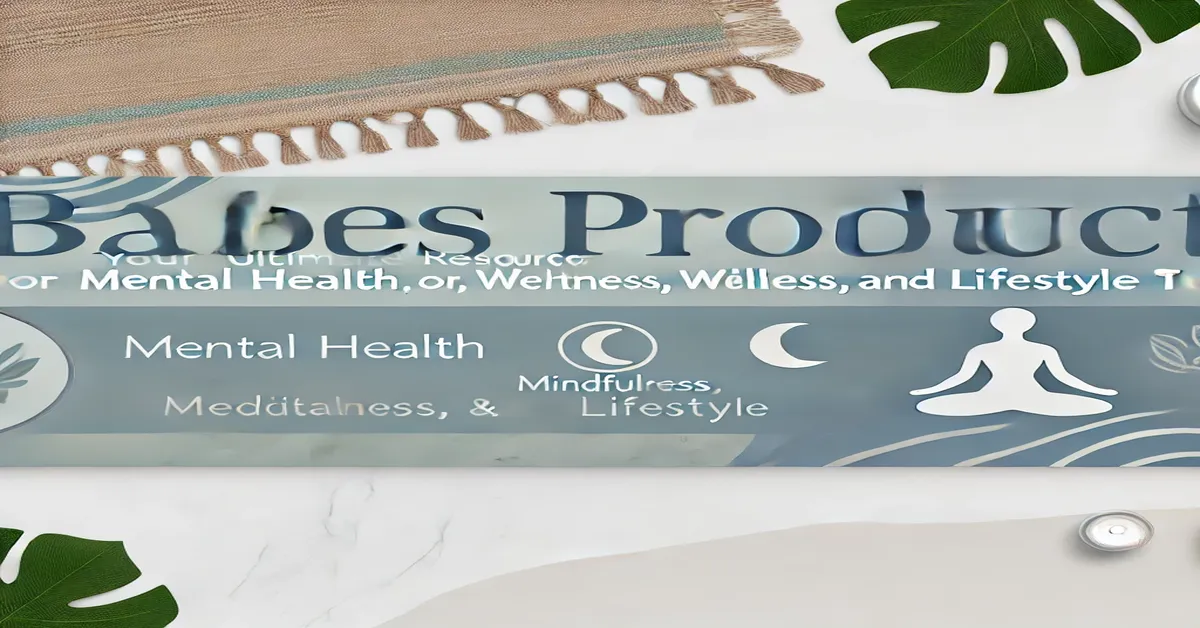In a world that often glorifies hustle and productivity the concept of recovery can sometimes take a backseat. Yet in our quest for success we may overlook the critical importance of nurturing our physical and mental well-being. Enter Recuperbate a holistic approach that emphasizes the significance of recovery in our daily lives. Whether you’re an athlete striving for peak performance or someone facing the daily stresses of life, understanding how to prioritize recovery can make a world of difference.
Imagine waking up each day feeling energized, focused, and ready to tackle whatever challenges come your way. This guide will explore practical techniques for physical recovery, mental health practices that promote optimal wellness, nutritional tips to fuel your body, and much more. It’s time to embrace a lifestyle that encourages not just survival but thriving in every aspect of life.
Understanding Recuperbate
Recuperbate is more than just a term; it represents a philosophy centered around the idea that recovery is essential for maintaining overall health and well-being. Recovery encompasses various aspects of life, including physical rehabilitation, mental health management, and nutritional support. The core of Recuperbate lies in the understanding that our bodies and minds require time and resources to heal, recharge, and perform at their best.
The journey of Recuperbate begins with the recognition that recovery is not merely an afterthought; it’s a vital component of a balanced lifestyle. By integrating recovery practices into your daily routine, you can enhance your performance, reduce stress, and foster resilience in the face of challenges.
The Importance of Physical Recovery
Physical recovery is fundamental to maintaining optimal health and performance, especially for those engaged in regular physical activity. When you push your body, whether through exercise, sports, or demanding work schedules, it’s essential to allow it the time it needs to recuperate.
Active Recovery Techniques
Active recovery involves low-intensity activities that promote blood flow and reduce muscle soreness without placing additional strain on the body. Consider incorporating activities such as walking, cycling, or gentle yoga into your routine. These practices not only aid recovery but also help to clear the mind and reduce stress.
Stretching and Flexibility
Incorporating stretching into your daily routine can enhance flexibility, reduce the risk of injury, and promote overall physical recovery. Focus on dynamic stretching before workouts to prepare your muscles, and engage in static stretching afterward to improve flexibility and facilitate recovery.
Sleep: The Ultimate Recovery Tool
Quality sleep is one of the most critical elements of recovery. During sleep, your body repairs and regenerates tissues, consolidates memories, and balances hormones. Aim for 7-9 hours of quality sleep each night, and establish a bedtime routine that promotes relaxation. This could include activities like reading, meditating, or gentle stretching to prepare your body for rest.
Mental Health Practices for Optimal Wellness
Just as physical recovery is crucial, so is mental recovery. In our fast-paced, high-stress environment, prioritizing mental health practices is essential for achieving overall well-being.
Mindfulness and Meditation
Mindfulness practices and meditation can significantly reduce stress and promote mental clarity. Setting aside just a few minutes each day to practice mindfulness—whether through guided meditation, deep breathing exercises, or simply focusing on the present moment—can help you cultivate a calmer, more centered mind.
Journaling
Journaling is an effective way to process thoughts and emotions. It allows you to reflect on your experiences, set goals, and identify areas for improvement. Whether you jot down daily reflections or express gratitude, journaling can serve as a powerful tool for mental recovery.
Social Connections
Building and maintaining social connections are vital for mental health. Engaging with friends and family provides emotional support, reduces feelings of isolation, and contributes to overall happiness. Make time for social interactions, whether in person or virtually, to nurture these important relationships.
Nutritional Tips for Fueling Your Body Right
Nutrition plays a crucial role in recovery. The food you consume directly impacts your energy levels, mood, and overall health. Here are some essential nutritional tips to consider:
Balanced Diet
Aim for a balanced diet rich in whole foods, including fruits, vegetables, whole grains, lean proteins, and healthy fats. Each food group offers essential nutrients that contribute to overall health and recovery. Focus on variety to ensure you’re getting a wide range of vitamins and minerals.
Hydration
Staying hydrated is crucial for recovery. Water is essential for maintaining bodily functions, aiding digestion, and preventing fatigue. Aim to drink enough water throughout the day, especially after exercise or during stressful periods.
Nutrient Timing
Pay attention to nutrient timing, particularly around workouts. Consuming a combination of carbohydrates and protein before and after exercise can help optimize performance and recovery. Snacks like a banana with peanut butter or a protein smoothie can be great options.
Embracing Holistic Recovery Practices
Recuperbate advocates for a holistic approach to recovery, encompassing not just physical and mental aspects but also emotional and spiritual well-being.
Integrative Therapies
Consider exploring integrative therapies such as acupuncture, massage, or aromatherapy. These practices can enhance relaxation, reduce stress, and promote physical recovery. Finding what works for you can make a significant difference in your overall wellness.
Nature and Outdoor Activities
Spending time in nature has been shown to reduce stress and improve mood. Whether it’s a walk in the park, hiking, or simply enjoying your backyard, connecting with nature can rejuvenate your mind and body. Make it a point to incorporate outdoor activities into your routine.
Creating a Recovery Ritual
Establishing a personal recovery ritual can be a powerful way to prioritize self-care. This could involve setting aside specific times for relaxation, engaging in hobbies, or practicing gratitude. Creating a ritual that resonates with you can enhance your commitment to recovery and overall well-being.
The Role of Technology in Recovery
In today’s digital age, technology plays a significant role in facilitating recovery practices. From fitness trackers to wellness apps, there are numerous tools available to support your journey.
Fitness Trackers
Fitness trackers can help monitor physical activity, sleep patterns, and overall health metrics. By providing insights into your daily habits, they can guide you in making informed decisions to enhance recovery and well-being.
Wellness Apps
Various wellness apps offer guided meditations, stress management techniques, and nutrition tracking. Utilizing these resources can provide structure and support as you prioritize recovery in your life.
Online Communities
Engaging with online communities focused on recovery and wellness can provide motivation and support. Sharing experiences, tips, and encouragement with others on a similar journey can foster a sense of belonging and accountability.
Overcoming Barriers to Recovery
Despite the many benefits of prioritizing recovery, barriers may arise that hinder your efforts. Here are some common obstacles and tips to overcome them:
Time Constraints
In our busy lives, finding time for recovery can be challenging. Consider scheduling recovery activities into your calendar, just as you would any other important commitment. Treating recovery as a priority can help you allocate time effectively.
Mindset
A mindset focused solely on productivity can impede recovery efforts. Remind yourself that taking time for recovery is not a luxury but a necessity for achieving long-term success. Embrace the idea that rest and self-care contribute to your overall performance.
Access to Resources
Not everyone has access to wellness facilities or resources. However, recovery practices can be adapted to fit your circumstances. Utilize online resources, community programs, or simple at-home practices to prioritize recovery without additional costs.
Conclusion
Incorporating Recuperbate principles into your daily life can lead to transformative changes in your well-being. By prioritizing physical recovery, nurturing mental health, and embracing holistic practices, you can foster resilience and thrive amidst life’s challenges.
Remember, recovery is not just about resting; it’s about actively engaging in practices that promote wellness, balance, and fulfillment. As you embark on your journey with Recuperbate, take the time to explore what resonates with you, and make recovery a central part of your lifestyle. Your body and mind will thank you.











